Introduction: Cutting Through the Blockchain Buzz
In the tech world, few terms have sparked as much excitement — or confusion — as blockchain. For startup founders and CTOs, it often appears as a silver bullet for innovation. Yet in many conversations, the term has become entangled with the hype surrounding cryptocurrency and NFTs, leaving decision-makers unsure about its real value. This is unfortunate, because the truth is far more practical — and far more valuable — especially for startups looking to build robust, transparent, and scalable operations.
At EmporionSoft, we work with startups across the globe, and one pattern is clear: blockchain technology, when stripped of its buzzwords, offers tangible solutions that solve real business problems. From streamlining logistics to ensuring data integrity and automating trust through smart contracts, practical blockchain applications for startups are not only viable — they’re transformative.
But here’s the challenge: separating meaningful use from market noise.
This blog aims to do just that.
We won’t talk about Bitcoin. We won’t glamorise NFTs. Instead, we’ll explore how blockchain is quietly revolutionising industries — helping startups in logistics, healthcare, RegTech, and beyond to build leaner, smarter, and more resilient systems. Whether you’re a technical lead or a strategic founder, this guide will help you understand:
-
What blockchain can actually do for your business
-
Which use cases are already generating ROI
-
How to implement blockchain without overhauling your tech stack
We’ll also share real-world success stories and point you to technologies that deliver measurable results — not just whitepaper promises.
📌 Ready to dive into real blockchain value? Explore how we help startups succeed via our custom development services or learn more about EmporionSoft’s mission.
Let’s break through the hype — and uncover what blockchain really has to offer startups.
Smart Contracts: Automating Startup Operations
For startups navigating tight budgets, lean teams, and fast-moving deliverables, administrative bottlenecks can become costly. From managing freelancers and vendors to executing service-level agreements, operational inefficiencies can quickly erode momentum. Enter smart contracts — one of the most practical blockchain applications for startups — offering a path to automation, accuracy, and built-in trust.
Smart contracts are self-executing agreements written in code, where the contract terms are embedded directly into the blockchain. Once predetermined conditions are met, actions are automatically triggered — without manual intervention, legal overhead, or third-party mediation.
As IBM Blockchain puts it, smart contracts “increase efficiency, speed, and trust in digital transactions” by ensuring that “agreements are transparent and secure” across participants. Ethereum, the pioneering blockchain platform for smart contracts, has further demonstrated how startups can build robust decentralised applications (dApps) that rely on these logic-based agreements.
Let’s explore how they’re transforming key areas of startup operations.
Hiring and Onboarding: Streamlining Freelance and Remote Teams
In the startup world, agility often means hiring project-based talent or remote contributors. However, managing contracts, verifying deliverables, and issuing payments can become a recurring burden. Smart contracts eliminate these friction points.
-
Example: When a freelancer submits approved work, a smart contract can automatically release payment from escrow, with all actions recorded immutably.
-
Impact: Reduces disputes, builds mutual trust, and improves payment turnaround time.
This is particularly beneficial for globally distributed startups relying on cross-border payments, where delays and verification issues are common.
Procurement: Making Supply Chains Intelligent
Whether you’re sourcing raw materials, digital services, or software licenses, procurement involves multiple parties, approvals, and checkpoints. Smart contracts digitise these processes.
-
Use case: Triggering automatic payment to a supplier once goods are verified and delivered (via IoT sensors or logistics APIs).
-
Benefit: Reduces manual follow-ups, eliminates duplicate entries, and prevents fraud.
As seen in real-world examples cited by IBM Blockchain, companies across logistics and manufacturing are already using blockchain smart contracts to enhance supply transparency and reduce procurement delays.
Service-Level Agreements (SLAs): Ensuring Accountability
For startups offering SaaS, consulting, or managed services, maintaining service-level agreements (SLAs) is mission-critical. Smart contracts can codify performance thresholds and enforce compliance automatically.
-
Scenario: A service provider guarantees 99.9% uptime. If downtime exceeds agreed thresholds, partial refunds or penalties are automatically issued.
-
Result: Builds customer confidence and creates transparent accountability, without complex arbitration.
These contracts also provide immutable audit trails, ensuring regulatory compliance where applicable — especially valuable for startups in fintech, healthtech, or RegTech sectors.
📌 Curious how other startups are leveraging blockchain to automate operations? Explore our case studies to see examples in action.
📬 Want to discuss how smart contracts could streamline your operations? Contact us for a free consultation tailored to your use case.
With the right implementation, smart contracts for startups aren’t just a technical advantage — they’re a competitive one.
Improving Supply Chain Transparency with Blockchain
For startups in manufacturing, ecommerce, or logistics, maintaining a transparent and accountable supply chain is critical — but often difficult. From delayed shipments to unverifiable sourcing claims, traditional systems lack real-time visibility and trust. This is where blockchain in supply chain management offers a compelling, cost-effective solution for growth-stage businesses.
By creating tamper-proof records and enabling real-time data sharing between stakeholders, blockchain is reshaping the supply chain landscape — and startups are well-positioned to benefit.
Let’s explore how this technology is already improving key logistics workflows.
Real-Time Inventory Tracking
Managing inventory across warehouses, fulfilment centres, and drop-shippers can be chaotic. Blockchain offers a decentralised ledger where each transaction — from production to delivery — is recorded securely and transparently.
-
Example: A startup can log each inventory movement as a time-stamped, immutable record, visible to suppliers, partners, and internal teams.
-
Impact: This reduces stock discrepancies, overordering, and order fulfilment errors — boosting efficiency and customer trust.
Provenance Verification and Ethical Sourcing
Sustainability and authenticity matter more than ever. Consumers demand to know where their products come from — especially in sectors like fashion, food, and electronics. With blockchain, startups can validate sourcing claims and product lineage from origin to end-user.
-
Use case: A sustainable clothing brand can record every stage of production — from organic cotton farms to certified factories — ensuring transparency and proof of ethical sourcing.
-
Benefit: Enhances brand reputation and builds customer loyalty through verified traceability.
One notable example is Walmart’s blockchain collaboration with IBM, which tracks mangoes and leafy greens back to the farm within seconds — a process that previously took days.
Automated Compliance and Logistics Audits
Regulatory compliance, customs documentation, and logistics audits are time-intensive — and prone to manual errors. Blockchain in logistics offers an automated, audit-ready trail of actions, approvals, and timestamps.
-
Scenario: A logistics startup uses blockchain to automatically log shipping temperatures, vehicle locations, and handoff confirmations.
-
Result: Enables instant verification for customs and regulators, while reducing disputes with partners or insurers.
For industries dealing with perishables, pharmaceuticals, or cross-border goods, this functionality is a game changer.
📦 At EmporionSoft, we help startups implement secure, scalable blockchain systems that enhance visibility and traceability across supply chains. See how others are doing it in our case studies or explore tailored blockchain services for your business needs.
In a world where every supply chain hiccup can impact reputation and revenue, blockchain in supply chain and logistics offers startups a clear advantage: accountability at every step.
Securing Startup Data with Blockchain Technology
Data breaches, manipulation, and accidental overwrites are no longer just risks — they’re business threats. For startups, where agility and trust are paramount, securing digital infrastructure must be a proactive strategy. One of the most effective and emerging approaches is blockchain data security — a powerful shield that ensures data integrity without reliance on centralised control.
Whether you’re handling sensitive customer records, operational logs, or compliance data, blockchain offers a new paradigm for trustless security — where the system itself is the source of truth.
Immutable Records: Trust Through Irreversibility
At the core of blockchain’s appeal is its immutability — once data is recorded, it cannot be altered or deleted without consensus. This is critical for startups needing auditable records or verifiable logs.
-
Use case: Healthcare or fintech startups can store patient consent records or transaction logs in a way that regulators and clients can independently verify.
-
Why it matters: Any attempt to manipulate historical data will be immediately obvious, as each block is cryptographically linked to the previous one.
As the National Institute of Standards and Technology (NIST) outlines, this cryptographic chaining ensures that records remain tamper-resistant and audit-friendly — ideal for startups operating in highly regulated environments.
Decentralised Storage: Reducing Single Points of Failure
Traditional databases operate on centralised servers. If those systems are breached or compromised, data loss and downtime can be catastrophic. Blockchain allows decentralised storage, distributing data across multiple nodes.
-
Startup benefit: Enhanced resilience against cyberattacks, ransomware, or accidental data corruption.
-
Bonus: Transparency across the network encourages internal accountability and third-party trust.
For businesses working in collaborative environments or across regions, decentralisation also reduces the friction of multi-party access — all while maintaining security.
Tamper Detection and Intrusion Alerts
In a blockchain-powered system, every access, update, or transaction is time-stamped and stored across the network. This enables built-in tamper detection — unauthorised changes are not only blocked, they’re visible.
-
Example: A startup monitoring supply chain logs or digital IP can detect if a file or entry has been altered — and by whom.
-
Result: Better internal controls and a verifiable chain of custody over sensitive data.
The World Economic Forum has highlighted blockchain’s role in restoring data trust and mitigating cyber risk, particularly for agile tech companies and startups.
🔐 Curious how your startup can embed this level of security by design? Explore EmporionSoft’s insights on emerging technology trends or learn more about our tailored blockchain services for secure systems.
When it comes to protecting your most valuable asset — data — blockchain data security offers more than encryption. It offers proof.
Regulated Industries: Blockchain Beyond Finance
While blockchain is often associated with finance, its most compelling applications are emerging in regulated industries where transparency, auditability, and trust are essential. For startups in healthcare, LegalTech, and RegTech, blockchain is enabling new levels of integrity, automation, and compliance — often without the need for expensive middle layers or centralised oversight.
Let’s examine how blockchain is already unlocking value in these critical sectors.
Blockchain in Healthcare: Securing Patient Records
Healthcare startups handle some of the most sensitive data imaginable — patient records, lab reports, treatment logs. Traditional storage systems, however, are fragmented and vulnerable to breaches.
Blockchain in healthcare enables tamper-proof, decentralised storage of health data, where access is logged and governed by smart contracts.
-
Use Case: Estonia’s national e-health system, cited by Harvard Business Review, uses blockchain to secure medical records, allowing patients to control access while maintaining national-scale data integrity.
-
Startup Impact: Founders can build HIPAA-compliant systems from day one, using blockchain to protect against breaches while empowering patient autonomy.
Whether it’s wearable device data, diagnostic history, or vaccine passports, blockchain ensures medical trust without manual reconciliation.
Blockchain in LegalTech: Preserving Evidence and Contracts
LegalTech startups are redefining how contracts, case files, and digital evidence are managed. But trust in documentation — from timestamps to version history — is critical.
Blockchain legaltech platforms provide cryptographic verification and immutable proof of creation, changes, and ownership.
-
Example: Everledger uses blockchain to track the origin of luxury goods, offering a transparent chain of custody that’s admissible in court.
-
Application: Legal document startups can hash files on-chain to verify authenticity, while smart contracts enforce legal agreements without third-party enforcement.
As McKinsey notes, blockchain’s true strategic value lies in recordkeeping where trust gaps exist — which makes legaltech an ideal fit.
Blockchain in RegTech: Automating Compliance and Reporting
Regulatory compliance drains both time and resources from growth-stage startups. Whether it’s GDPR, financial reporting, or AML checks, errors can lead to fines and reputational harm.
Blockchain enables automated compliance trails, storing proof-of-process, consent, and audit logs in a secure and shareable format.
-
Scenario: A fintech startup can record every AML check, user consent, and transaction trail immutably, simplifying audits and reducing reporting overhead.
-
Result: Faster regulatory clearance, fewer disputes, and built-in transparency.
With increasing scrutiny on digital platforms, blockchain in RegTech is helping startups stay lean while remaining compliant.
🚀 Ready to integrate blockchain into your regulated product or platform? Our team at EmporionSoft specialises in secure, industry-grade blockchain solutions for startups. Reach out to our team for a tailored consultation via the contact page.
In these high-stakes industries, blockchain isn’t a trend — it’s a foundation for trust.
Startup Success Stories: Blockchain Without the Crypto Lure
Blockchain’s true power isn’t reserved for cryptocurrencies or speculative assets — it lies in solving real-world problems with verifiable trust, transparency, and automation. Across sectors like sustainability, logistics, and digital identity, startups are already using practical blockchain applications for startups to build scalable, future-ready businesses.
Below, we explore three blockchain-powered success stories that prove this technology’s value far beyond crypto hype.
Provenance: Supply Chain Transparency for Ethical Commerce
Provenance, a UK-based startup, uses blockchain to help brands verify and communicate the origins of their products. Focused on sustainability and ethical sourcing, Provenance allows companies to digitally trace each product journey — from raw materials to retail shelves.
-
Impact: Enables consumer trust through proof of fair trade, organic sourcing, or low-carbon processes.
-
Tech highlight: Each product claim is anchored on a blockchain ledger, making it publicly verifiable.
This model is a game changer for ecommerce and DTC startups wanting to build authenticity and loyalty in an increasingly conscious market.
🔎 Takeaway: Use blockchain to turn transparency into a competitive edge.
Everledger: Blockchain for Asset Authentication
Everledger provides an immutable digital ledger for verifying the authenticity and history of high-value assets — such as diamonds, art, and wine. By recording the origin, characteristics, and ownership transfers on blockchain, Everledger fights fraud and builds confidence among buyers and insurers.
-
Notable application: The diamond industry uses Everledger to trace a gem’s journey from mine to market, ensuring ethical mining and legitimacy.
-
Industry fit: LegalTech, eCommerce, and insurtech startups can leverage similar models for any product with resale value or provenance risks.
📌 Everledger has shown how blockchain legaltech applications can be built around assurance, not speculation.
🔎 Takeaway: Blockchain creates immutable proof where trust is vital but hard to establish.
Guardtime: Securing Identity and Health Data
Estonian-born Guardtime pioneered the use of blockchain for large-scale digital integrity. One of its key implementations lies in national-level health and identity data, including Estonia’s e-health system and digital ID programs.
-
Why it matters: Guardtime’s Keyless Signature Infrastructure (KSI) ensures data hasn’t been tampered with — across systems and over time.
-
Startup relevance: Healthtech, RegTech, and gov-tech ventures can implement similar infrastructures to meet compliance and privacy standards with built-in verification.
Guardtime exemplifies the potential of blockchain in identity management, proving that decentralised trust isn’t just an abstract concept — it’s infrastructure-ready.
🔎 Takeaway: Digital integrity is a service — and blockchain can deliver it at scale.
📂 Want to see how EmporionSoft has supported similar startup innovations? Dive into our case studies to explore real-world implementations across sectors.
📘 Learn more about our values and global innovation approach on the About EmporionSoft page.
These startups remind us that when applied with purpose, blockchain technology becomes a business enabler — not just a buzzword.
From Theory to Implementation: Partner with Blockchain Experts
The noise around blockchain has often overshadowed its true, transformative potential — especially for startups seeking efficiency, trust, and innovation without the volatility of crypto markets. As we’ve explored, the most successful implementations of blockchain today are those that solve practical problems — automating workflows, securing data, and enhancing transparency across sectors.
For startup founders and CTOs, the question is no longer “Should we use blockchain?” but rather “How can we use it meaningfully?”
From smart contracts that eliminate operational friction, to supply chain transparency, data security, and regulatory compliance, the case for blockchain is no longer theoretical — it’s proven, scalable, and accessible.
At EmporionSoft, we specialise in helping startups turn emerging technologies into measurable impact. Our global team has worked with companies across the UK, Europe, the Middle East, and North America to design, build, and deploy custom blockchain solutions that align with business goals — not just buzzwords.
Whether you’re looking to:
-
Build a decentralised audit trail
-
Launch a product with blockchain-backed integrity
-
Integrate blockchain into your existing architecture
-
Or simply understand what’s possible for your use case
—we’re here to guide you, technically and strategically.
🚀 Let’s make blockchain work for your startup.
📅 Book a free consultation
📨 Or contact our team directly to discuss your project.
When you partner with EmporionSoft, you don’t just get developers — you gain a team of forward-thinking engineers, analysts, and architects dedicated to turning bold ideas into enterprise-grade solutions.
Your vision. Our code. Real-world results.

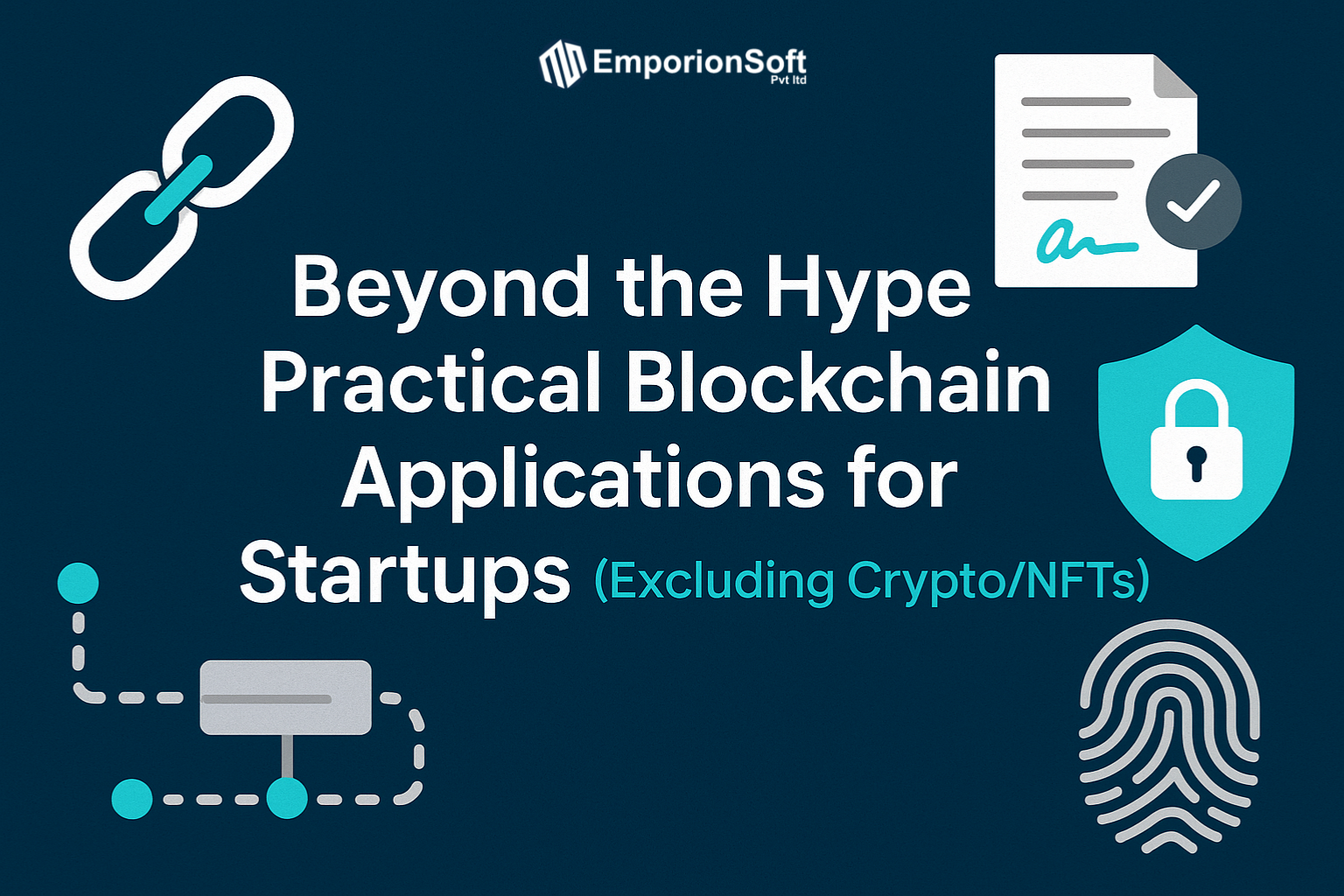
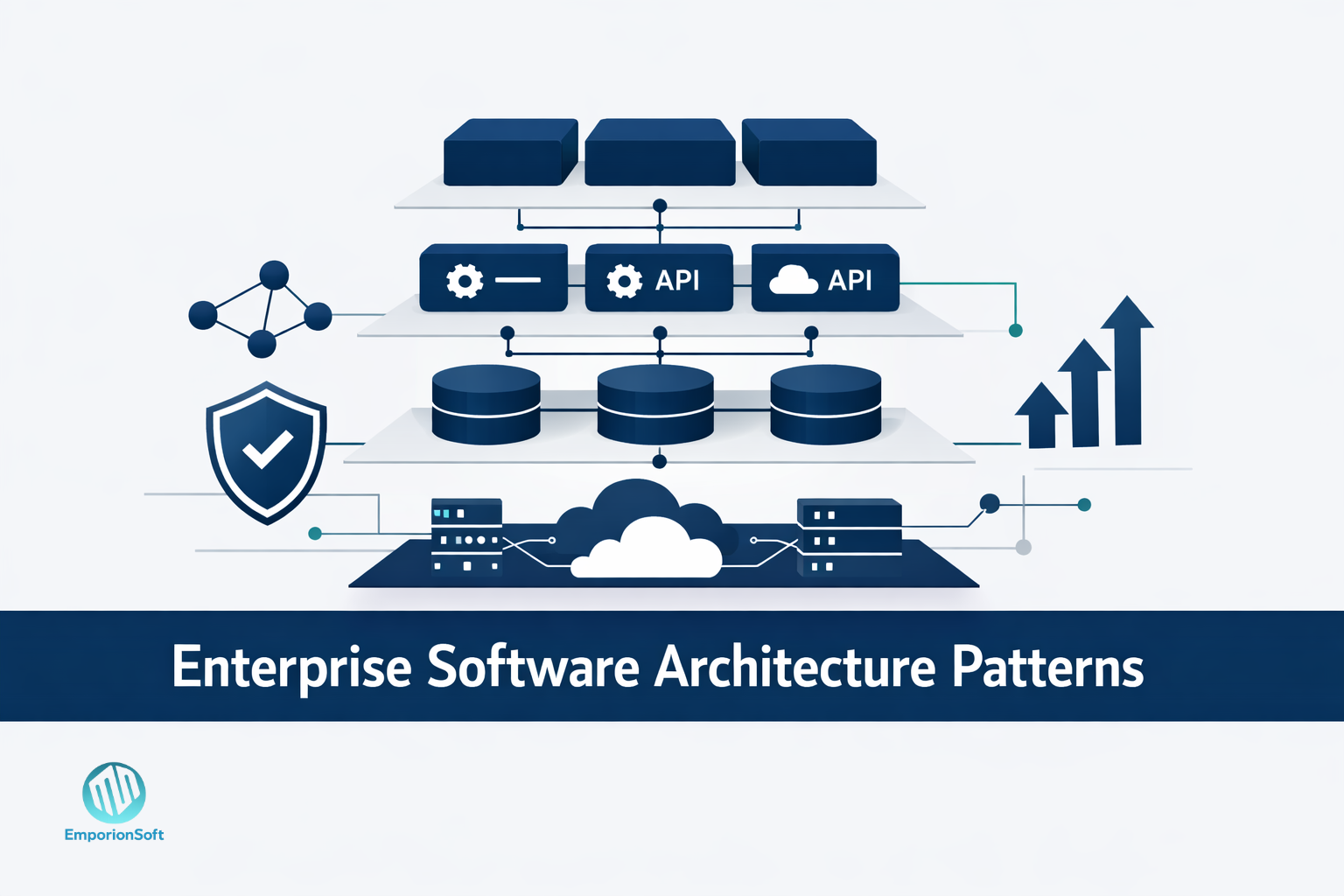
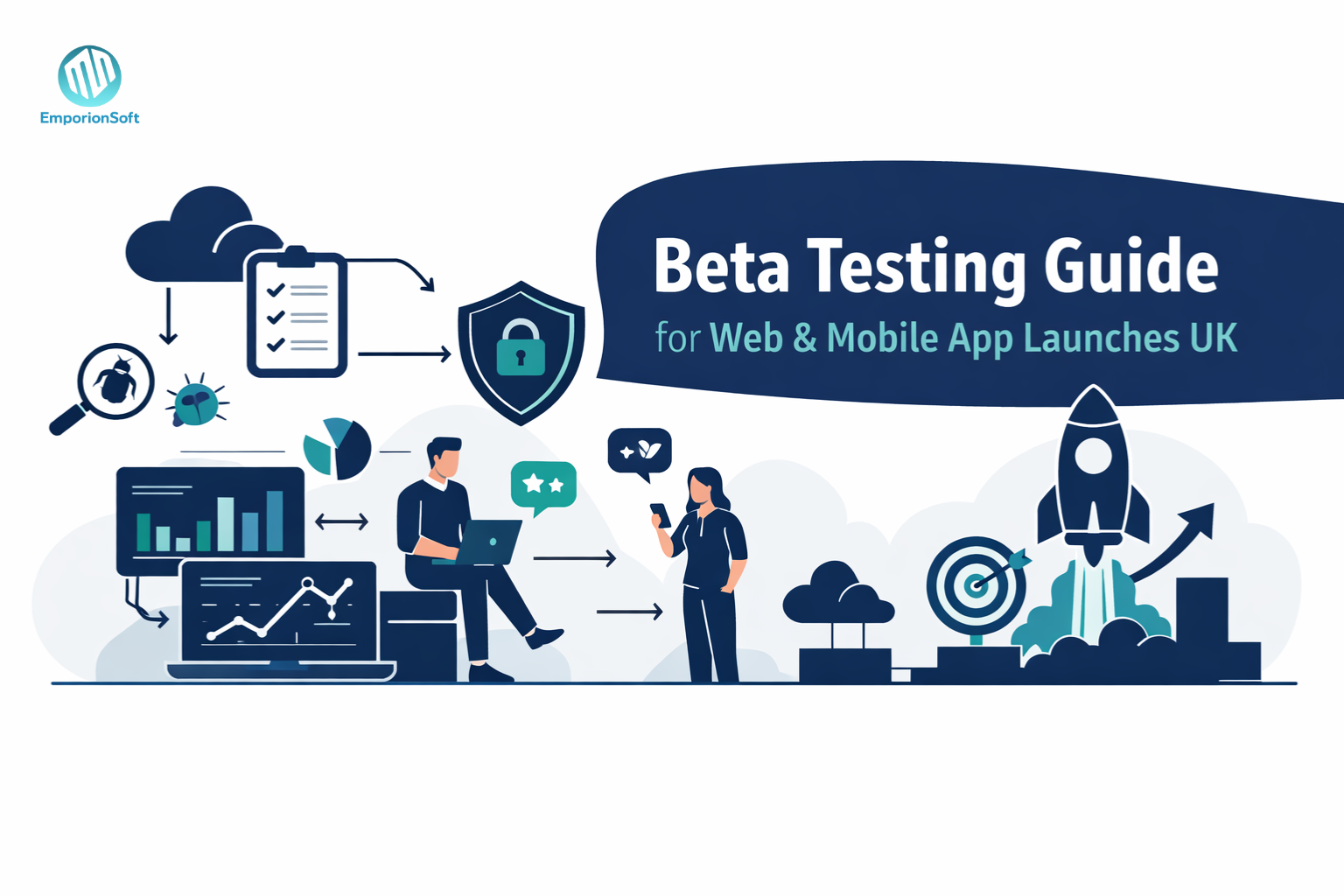
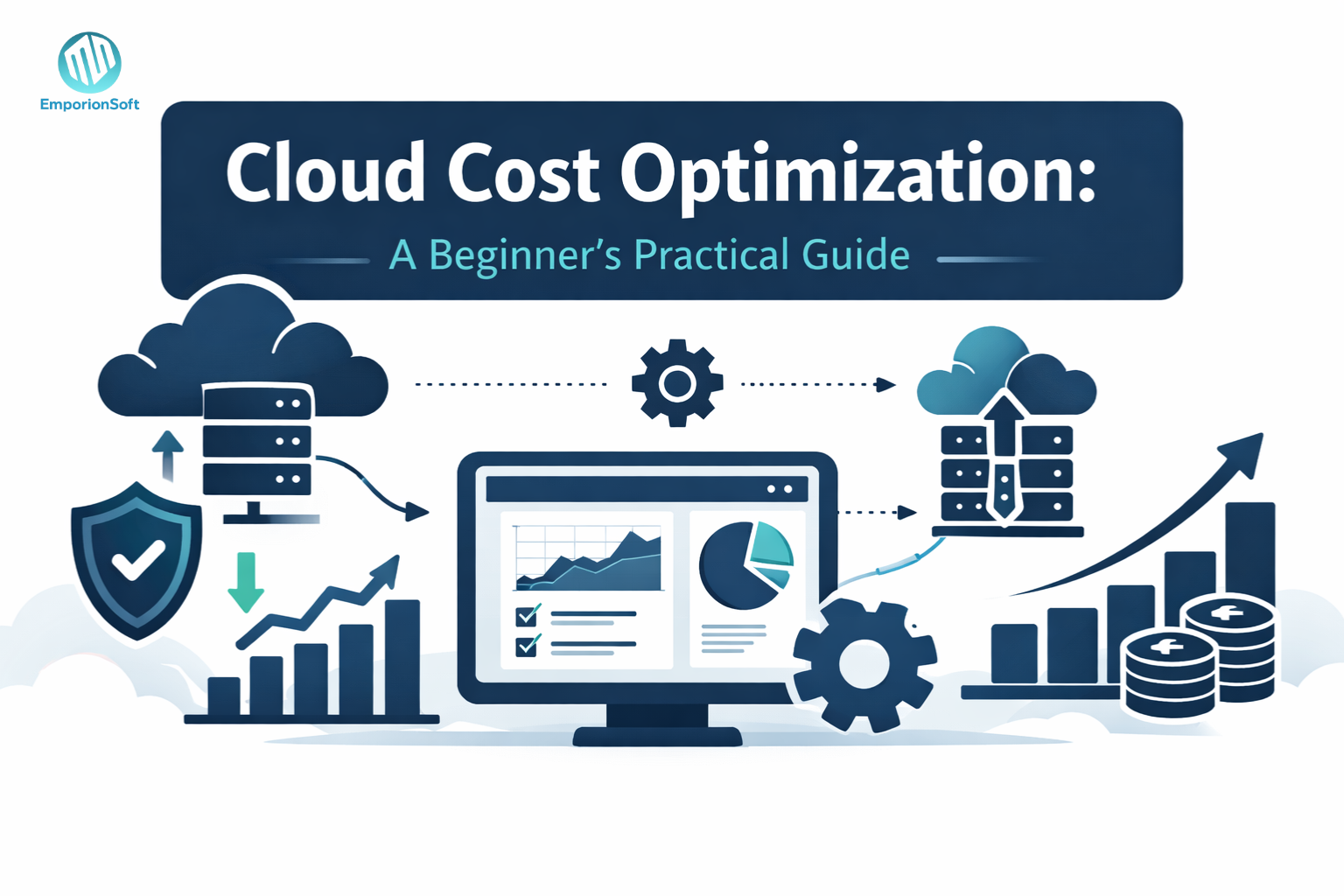





Your articles never fail to captivate me. Each one is a testament to your expertise and dedication to your craft. Thank you for sharing your wisdom with the world.
Its like you read my mind You appear to know so much about this like you wrote the book in it or something I think that you can do with a few pics to drive the message home a little bit but other than that this is fantastic blog A great read Ill certainly be back
What i dont understood is in reality how youre now not really a lot more smartlyfavored than you might be now Youre very intelligent You understand therefore significantly in terms of this topic produced me personally believe it from a lot of numerous angles Its like women and men are not interested except it is one thing to accomplish with Woman gaga Your own stuffs outstanding Always care for it up
Your blog is a breath of fresh air in the often stagnant world of online content. Your thoughtful analysis and insightful commentary never fail to leave a lasting impression. Thank you for sharing your wisdom with us.
Thank you for the auspicious writeup It in fact was a amusement account it Look advanced to far added agreeable from you However how can we communicate
Your blog has become an indispensable resource for me. I’m always excited to see what new insights you have to offer. Thank you for consistently delivering top-notch content!
Your blog is a breath of fresh air in the often stagnant world of online content. Your thoughtful analysis and insightful commentary never fail to leave a lasting impression. Thank you for sharing your wisdom with us.
you are truly a just right webmaster The site loading speed is incredible It kind of feels that youre doing any distinctive trick In addition The contents are masterwork you have done a great activity in this matter
hiI like your writing so much share we be in contact more approximately your article on AOL I need a specialist in this area to resolve my problem Maybe that is you Looking ahead to see you
Hi my loved one I wish to say that this post is amazing nice written and include approximately all vital infos Id like to peer more posts like this
I have read some excellent stuff here Definitely value bookmarking for revisiting I wonder how much effort you put to make the sort of excellent informative website
I do not even know how I ended up here but I thought this post was great I do not know who you are but certainly youre going to a famous blogger if you are not already Cheers
Somebody essentially lend a hand to make significantly articles Id state That is the very first time I frequented your website page and up to now I surprised with the research you made to make this actual submit amazing Wonderful task
Wow amazing blog layout How long have you been blogging for you made blogging look easy The overall look of your web site is magnificent as well as the content